How to Plan Your Wedding in Ireland (from Abroad)
Or ‘How To Check Off Everything You’ll Need To Plan your Destination Wedding in Ireland’
Flying across the Atlantic to get married in Ireland is exciting and oh-so-romantic! However, we know it can be difficult to process the many steps and hurdles in the way. But as we say in Ireland: “It’ll be grand!“.
You could spend weeks figuring out all the requirements and logistics of an Irish wedding. Or, you could make it a breeze and use this simple, six-step guide to plan your wedding in Ireland.
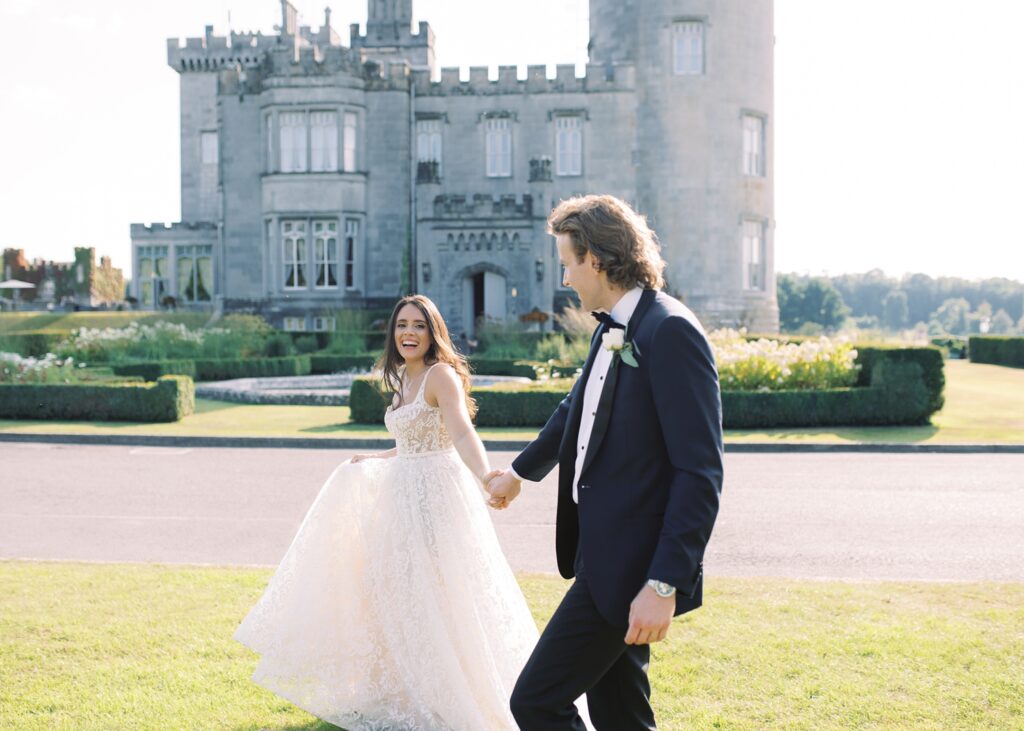
As photographers, Sam and I love creating long-lasting memories for couples from all around the globe. We see a particular wonder and excitement on the faces of those visiting Ireland from abroad. As such, we wanted to make it easier for people from all over the world to celebrate their love on the Emerald Isle.
Think of this blog post as your Cheat Sheet for how to plan your wedding in Ireland; save it somewhere and tick off items as you go along.
Even if you live outside of America, this article will still help.
We know you must be eager to get planning already, so let’s jump right in! Here is a quick list of all the topics and necessities we’ll cover:
- Deciding on your preferred type of ceremony (religious, civil, spiritual);
- Notifying an Irish Registrar about your wedding;
- Understanding the legal requirements to marry;
- Gathering the necessary documents from your home country (whether that’s America or elsewhere);
- Assessing what fees and costs must be covered in advance;
- And fun part! Choosing the right season, venue, photographer, styling, etc
That’s all! We’ll get through this and you’ll be well on your way to your special day.
Before we begin in earnest, make sure to consider the Irish calendar; be aware of peak tourism season (around July), and national holidays too. Accommodation costs can increase, as well as the demand for certain facilities (like your venue).
These are the essential 6 steps to getting married here in Ireland. Some steps may be longer, or shorter, depending on individual circumstances but we’ll cut straight to the facts.
1. What Are My Options For a Ceremony in Ireland?
Starting off, you’ll need to have an idea of what kind of ceremony you want in Ireland.
Religious, civil, and secular weddings are all legally recognised in Ireland. Since 2015, same-sex marriage has been legally recognised too! Here are the basics for different ceremony types:
Religious Ceremonies in Ireland
A religious wedding in Ireland requires quite a lot of advanced planning, including several meetings. The majority of religious weddings in Ireland are Catholic, though other religious ceremonies can be conducted too. The first thing you should do is contact the house of worship relevant to your ceremony; marriage requirements of different faiths may vary!
It should come as no surprise but most religions don’t recognise same-sex marriage. So, if you want a same-sex marriage that is religious, you should consult your local place of worship for clarification.
Note: If you plan to have a Catholic ceremony, you will likely have to complete a Pre-Marriage Course! Also, these courses must be booked well in advance of your wedding day, so factor in enough extra time.
Civil Ceremonies in Ireland
Local municipalities will host civil ceremonies, as well as any venue that is Registrar-approved. Bear in mind, civil ceremonies can only take place on weekdays.
Whether you plan to marry in a castle, a manor house or similar venue, you must first ensure that it’s approved.
Pro Tip: Contact your preferred venue and ask about their previous experience with civil ceremonies!
Secular/Spiritual ceremonies in Ireland
Secular and Spiritual ceremonies are a more flexible option and generally aren’t as strict about location or timeline. It’s no wonder that they’re becoming ever more popular in Ireland!
Unlike religious ceremonies, there are relatively no restrictions on days or places, indoors or outdoors. Your only limitation is the Irish weather. Pro Tip: Be prepared for rain!
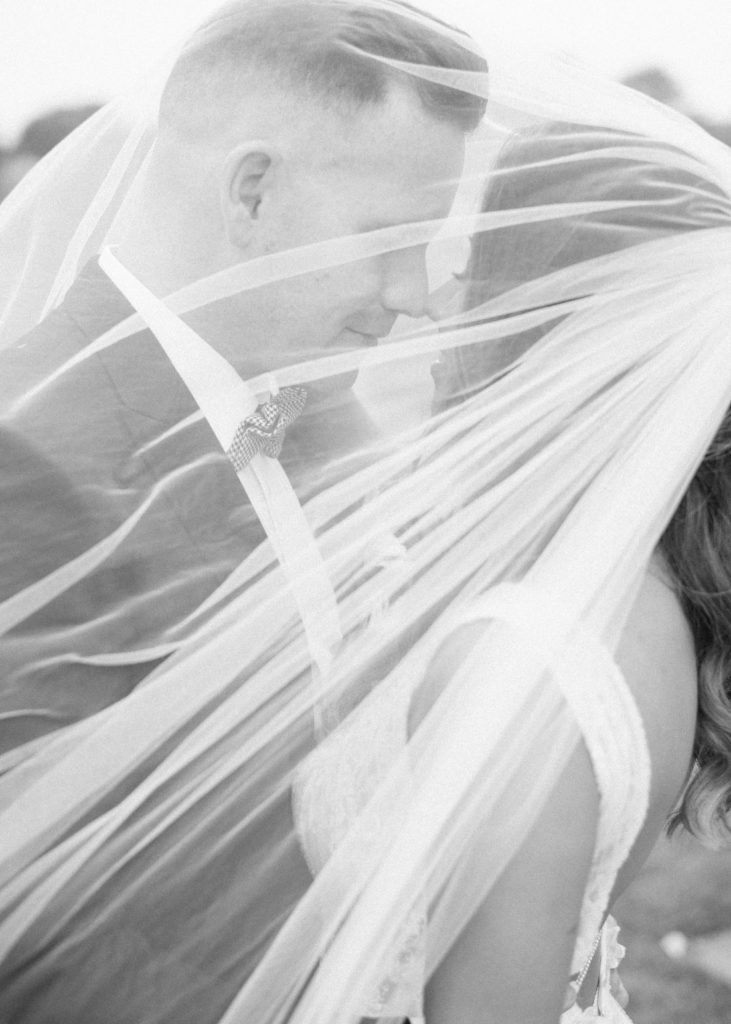
Finding a Solemniser in Ireland
Once you know what type of ceremony you want, you can find a Solemniser or Spiritual Minister. Your Solemniser must be chosen from the official Register of Solemnisers. It’s a long list, so we suggest searching either by denomination or by location; this can be done by pressing CTRL+F (or CMD+F) on your keyboard to find relevant words or names.
The next step is to contact a Registrar and notify them of your intent to marry.
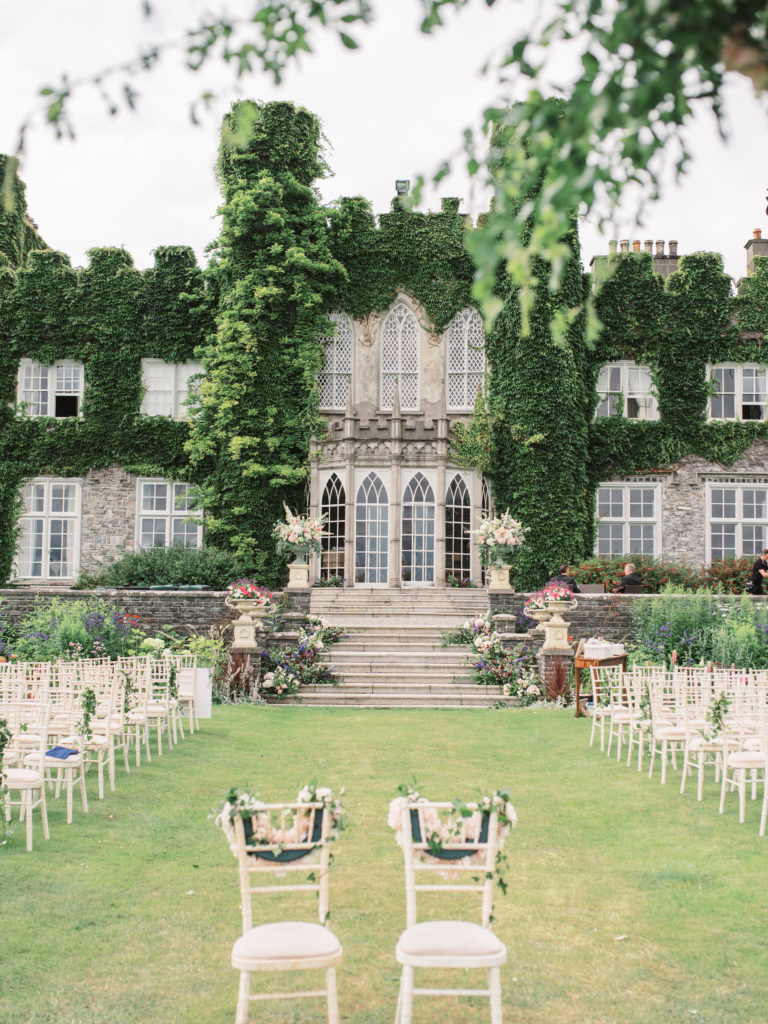
2. Who Do I Contact First?
Now you must make an appointment to notify a Registrar in Ireland; this must be done at least three months in advance of your wedding day. A Registrar is simply an official who must make a record of your marriage–but also grant you permission to marry.
Regardless of what kind of wedding you want, the registration process is much the same. Since you live abroad, you can contact the Registry office by telephone/Skype (found in the list below)! Hopefully, if they agree, you can complete your notification by post. Phew!
Ultimately, there are two ways to book this appointment: You can find an appointment yourself via the official website. Alternatively, choose a Registrar to contact directly: A full list of Registrars in Ireland can be found in this handy list! Find the one closest to where you plan to wed, just to make things easier.
While not necessary, it is helpful for the Registrar you first notify to be local to you or your intended wedding venue. Meeting a Registrar local to your venue will be necessary later on.
Pro Tip: You should ask what documents they expect from you before you meet with them in person.
During your meeting, you could ask a few questions to help you plan your wedding in Ireland. Such as:
- Will I need to contact a different Registrar depending on our venue?
- What additional requirements must be met depending on our ceremony?
- What documents must we get while we’re in the USA (or your home country)?
- Can I still involve my friends/family in my ceremony?
It is recommended to fill in this Data Capture Form when booking an appointment with the registrar. It includes details about your direct relatives, witnesses, venue, and solemniser; this will help speed up the process and make everyone happy.
If everything is in order after your appointment, your Registrar will issue a declaration form; this form must be signed in-person at least 5 days before your wedding. After signing that form, they will issue a Marriage Registration Form!
Next, you need both your witnesses and your spiritual minister/Solemniser to sign a copy. Bring this signed copy (and original MRF) back to your registry office to get your certificate issued. Now you are allowed to marry in Ireland! Yahoo!

3. What About the Legal Requirements to marry in Ireland?
Regardless of your ceremony type, you must provide an ‘intent to marry’; Hand this in at the Registrar’s office local to your chosen wedding venue. Of course, you both must be at least 18 years old to legally marry in Ireland.
Again, it’s vital that you give at least three months notice of your intent to marry. Our best advice is to give notice and hand in forms well in advance of the 3-month mark; bureaucracy is a slow machine, so the earlier the better!
Aside from these requirements, the rest is all down to paperwork.
Pro Tip: Schedule your trip earlier; you will eventually need to sign certain documents (like your MRF) in person with your registrar.
By the way, if you’re a foreign national marrying an Irish citizen, you are not required to have Irish citizenship to have your wedding in Ireland.
4. Required Paperwork and Documentation
Here I will detail the minimum documentation for a spiritual or civil wedding in Ireland. However, a religious ceremony may require more.
Important: As a foreigner about to wed in Ireland, you will need an apostille stamp on all copies of your documents! You can get an apostille stamp (for documents like birth certs and proof of US address) from any official state office. If you do not live in the USA, consult your nearest municipal office.
Generally, you and your spouse will need an original (or certified copy) and colour photocopy of the following items:
- A valid passport (or national ID card);
- Original birth certificate;
- Proof of address (like an original utility bill);
- The Marriage Registration Form (MRF) received from your Registrar;
- Declaration of your preferred type of wedding ceremony (religious, civil, or spiritual);
- Name of your chosen solemniser;
- Intended location and date of your wedding;
- Names and birthdates of both witnesses.
Depending on your circumstances, you may also need the following documents:
- A letter/certificate of Freedom to Marry (if neither of you are Irish nationals);
- Divorce Papers or Death Certificate if you’ve been previously married/divorced/widowed;
- Evidence of your immigration status within Ireland if you are a migrant resident;
- A PPS Number if one or both of you have or will have a current/future address in Ireland).
In addition, a Catholic wedding may require some or all of the following documentation:
- A Prenuptial Enquiry Form from your parish;
- Certificates of your Baptism, Communion, and Confirmation;
- A letter/certificate of Freedom to Marry from your local county office (USA);
- Special permission from a Bishop (for non-nationals);
- Dispensation letter (if one of you is non-Catholic);
- Proof of completion of a marriage preparation course.
To clarify, a Freedom to Marry certificate can be requested from your local state office in the USA. Otherwise, the Irish Commissioner of Oaths could notarise a statement to declare that you are free to marry. Present yourselves, with these documents in-hand, to your registry office and you should be fine!
(A list of documents you should bring with you to your Marriage Notification appointment can also be found here.)
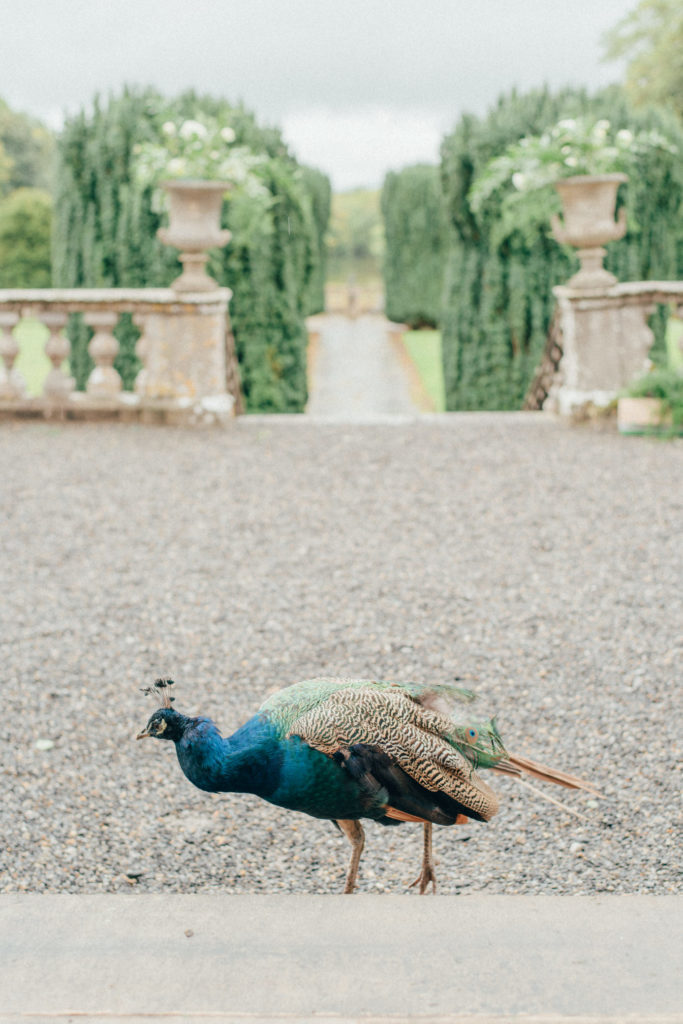
5. What about Irish Wedding Fees & Costs?
Time to face the numbers. Let’s see what fees you can expect to pay as you plan your wedding in Ireland:
- The standard notification fee of €200 (reduced to €50 for same-sex couples who were in a civil partnership!);
- A marriage certificate (or copy) for €20;
- (If you’re having a religious ceremony) A ‘suggested’ donation for your wedding’s religious minister of around €200.
How to save money on international currency transfers
Aside from these, there are of course the costs of flights, accommodation and vendor deposits; and since you will be booking your wedding from abroad, you may be surprised at how fast currency exchange fees can add up. To help with this, we highly recommend using websites like Wise.
It’s the cheapest way to send and receive money, with greatly reduced fees compared to banks! Check it out and thank us later.
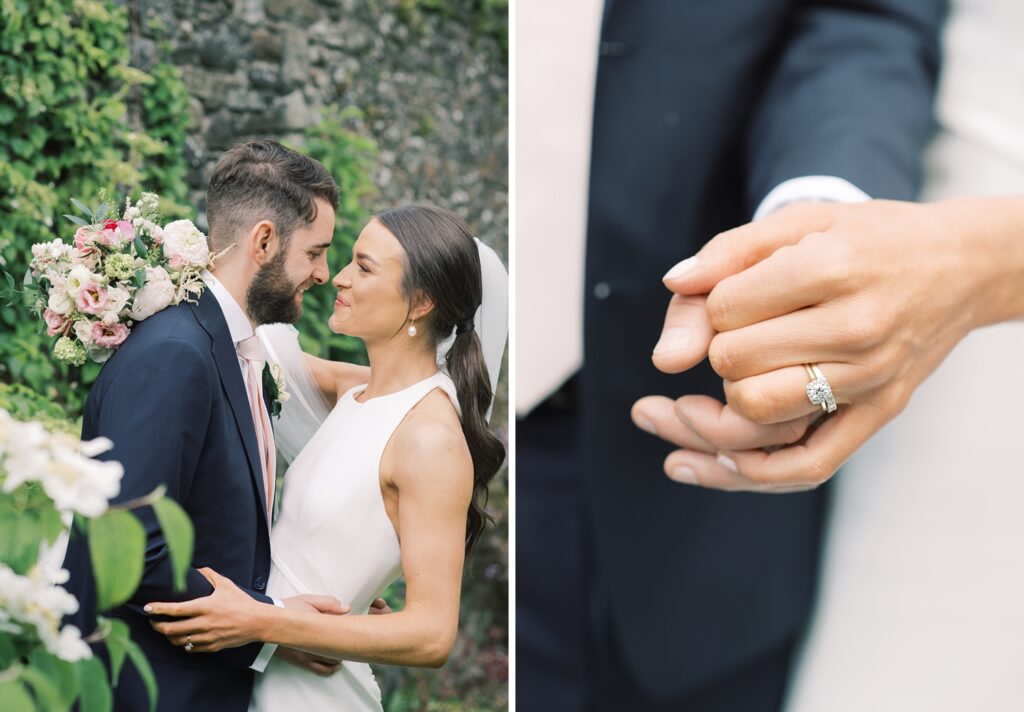
All photos by Ivana & Sam Photography
6. Whew! Finally, let’s Talk About How to Plan Your Wedding Day!
With most of the administration out of the way, let’s move on to actual wedding talk!
Weddings in Ireland vary across the spectrum; from grand parties, to close family reunions. How your ideal wedding will look depends entirely on your tastes and priorities. What Sam and I want to help you decide, however, is how to choose the right venue, vendors and style.
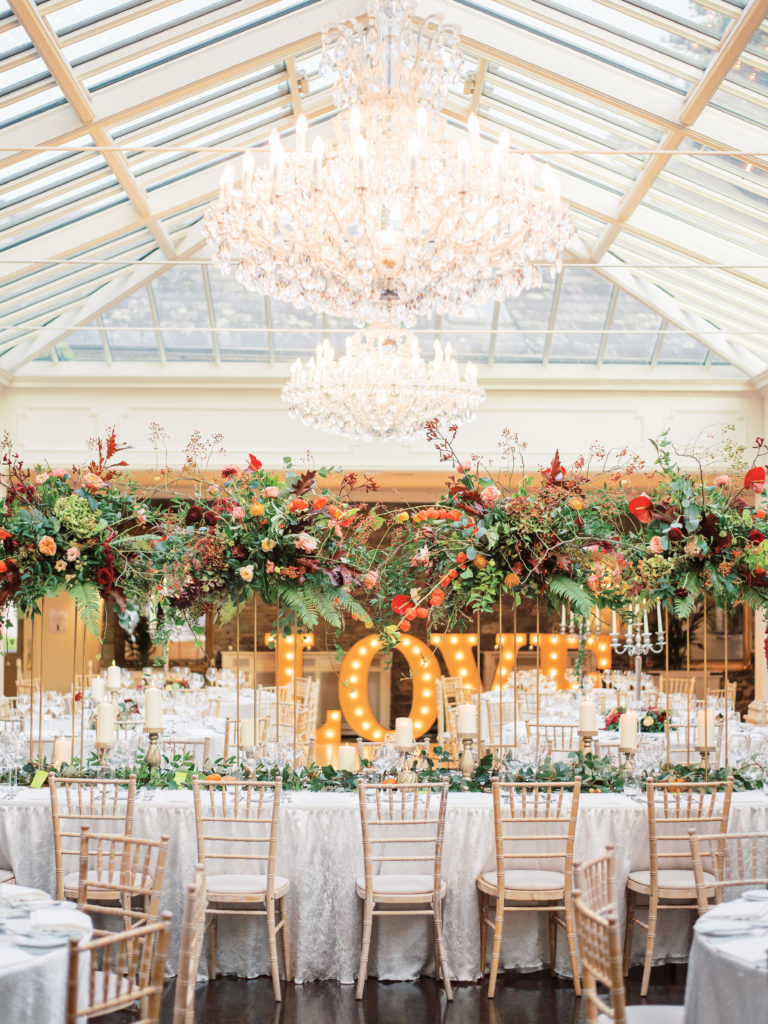
All photos by Ivana & Sam Photography
When choosing the ‘right’ anything for your wedding, we suggest you not merely base your day on all the pretty Pinterest stuff you’ve seen. More importantly, let your own values and priorities be your guide. These will ultimately dictate how your big day will run, as well as how your guests will feel and remember it.
Your wedding day is a public declaration of your intimate connection; therefore, the tone, style, and energy of your wedding day should come from who you are as a couple.
Whether you’d love to invite 200 people to a luxury castle party, or you can’t imagine anything better than just the two of you making your vows on the cliff edge over the Atlantic, it will be an unforgettable experience if you just go with your gut and stay true to You!
Choosing vendors who complement your preferred pace and energy for the wedding day ultimately makes a huge difference in your experience. This can mean choosing a photographer that specialises in relaxed, natural and true-to-life images, if that’s how you want to see yourself.
All photos by Ivana & Sam Photography
But let’s get a bit more practical! Starting off, the best things to know are the size of your guest list, your season and timing, as well as the style & venue;
Wedding Guests
It is important to know how many guests you intend to invite to your wedding; wedding venues in Ireland will rely on this information to accommodate your ceremony.
Most venues in Ireland operate within a set threshold of guests. This means that some venues are better suited to accommodate smaller or larger wedding parties. Additionally, some venues might only use specific parts of their grounds depending on the size of your guest list.
This is why we suggest you know your guest list first; you’ll have an easier time finding a suitable venue and planning your day.
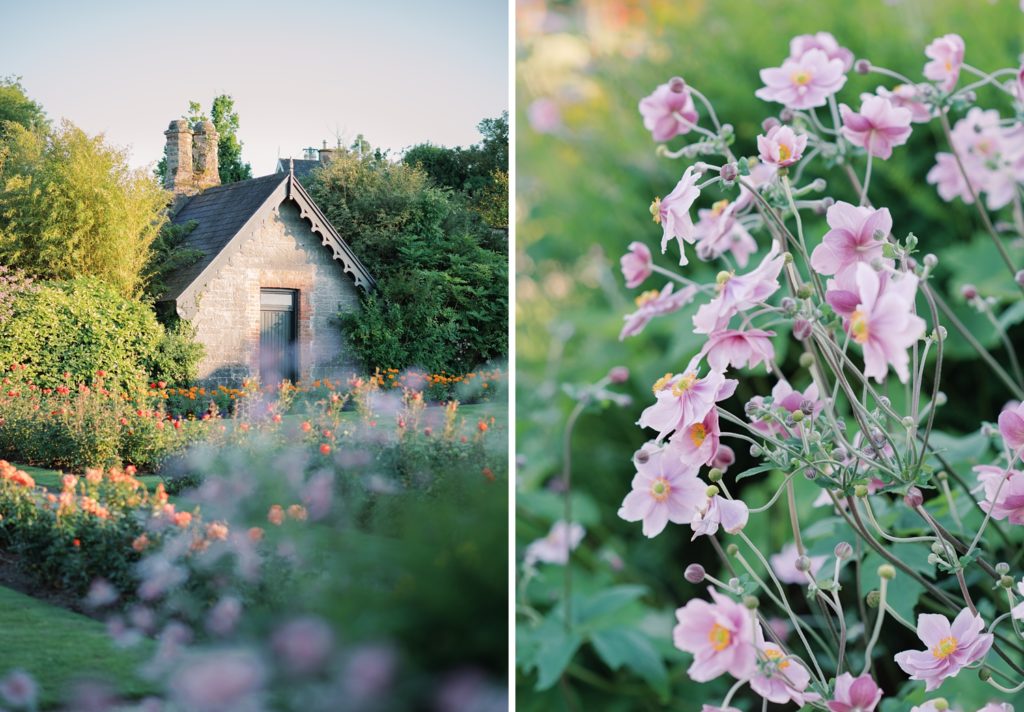
All photos by Ivana & Sam Photography
Season & Wedding Day Timeline
Planning the wedding timeline itself can sound daunting, and it’s a subject worthy of a whole blog post! But if you approach it from the right angle, it is manageable. With that in mind, we gift all our couples an exclusive Wedding Day Guide. This multi-page magazine is packed with our best advice on how to have an unforgettable day and get the photos that you dream of! (For example, we suggest starting Winter ceremonies earlier to utilise the limited daylight and avoid rushing and stress later.)
However, even the most well-planned wedding day is subject to last-minute surprises. That is why communicating your timeline to those who will be closest to you on the big day helps enormously. Unpredicted things may happen and they will become part of your unique wedding day story; however, knowing who you will rely on makes it easier to course-correct when something goes awry!
Our priority as photographers is to ensure that you have beautiful images. But we know what’s equally important is for your images to reflect the uniqueness of your wedding day, and that includes those unplanned silly things that sometimes happen. We always suggest that you embrace the rawness of your wedding day and avoid stress by delegating tasks as much as possible.
With an understanding of the overall flow of your wedding, finding suitable vendors will become easier.
All photos by Ivana & Sam Photography
Style & Venue
I place these two elements together because knowing one makes it easier to choose the other. Do you want a relaxed, boho wedding? Or perhaps you would prefer a more refined, elegant vibe? Knowing what style speaks to you will allow you to choose all of the accouterments of your wedding in Ireland. Do you want a bright, outdoor space for your ceremony? Or would you enjoy a more intimate and cosy atmosphere? There are venues that cater to different tastes, so I recommend that you meditate on yours.
To help you in the search, here are our detailed guides for some of our favourite venues in Ireland:
Final tips and useful resources:
You now know all the steps needed to plan your wedding in Ireland – congratulations!
Your wedding is closer than ever before! We’re already excited for you, and we hope that this Cheat Sheet helped you organise.
Ireland is a fantastic destination for your wedding; it is resplendent with lush fields, welcoming faces, and ancient history around every corner! It offers everything from grand castle weddings, elegant manor house celebrations, and even wild outdoor ceremonies like in times of yore. You and your partner will be spoiled for choice! You will not regret your choice to say “I do” on the Emerald Isle.
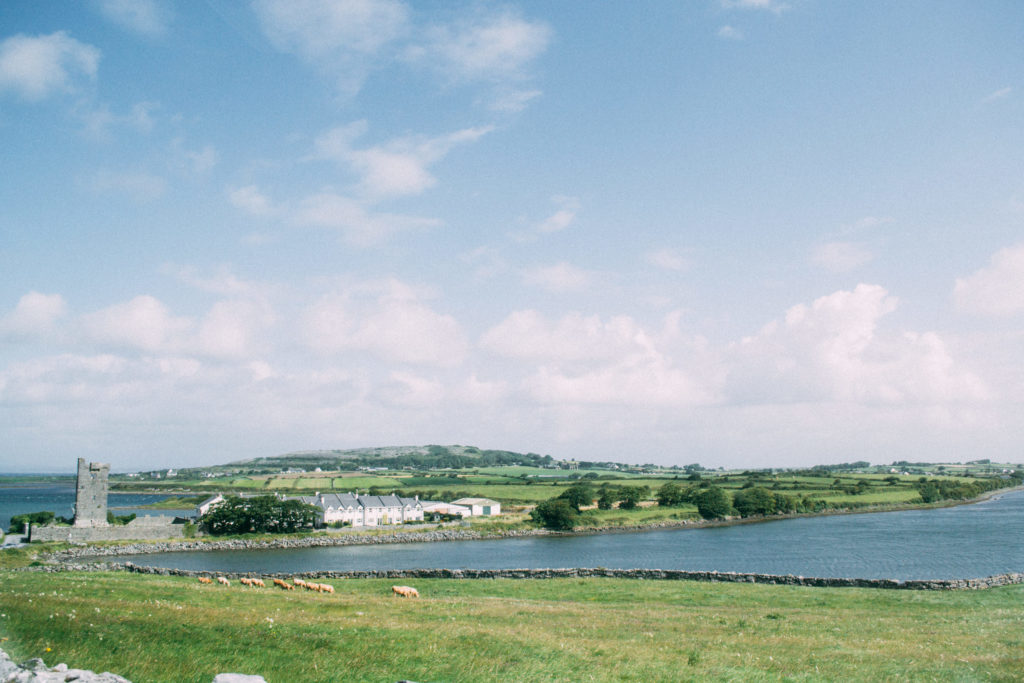
Useful Links and Resources
If you are a foreign national and want to plan your wedding in Ireland, this list will help you prepare:
Australian Embassy in Ireland, Canadian Embassy of Ireland, British Embassy in Ireland (subject to change!), the United States Embassy in Ireland, and the Chinese Embassy in Ireland.
How to Plan Your Wedding in Ireland in 2024/2025 | The Ultimate 6 Step Guide | Planning your Wedding in Ireland from Abroad | Tips and Advice for Your Destination Wedding in Ireland
*Updated 2024
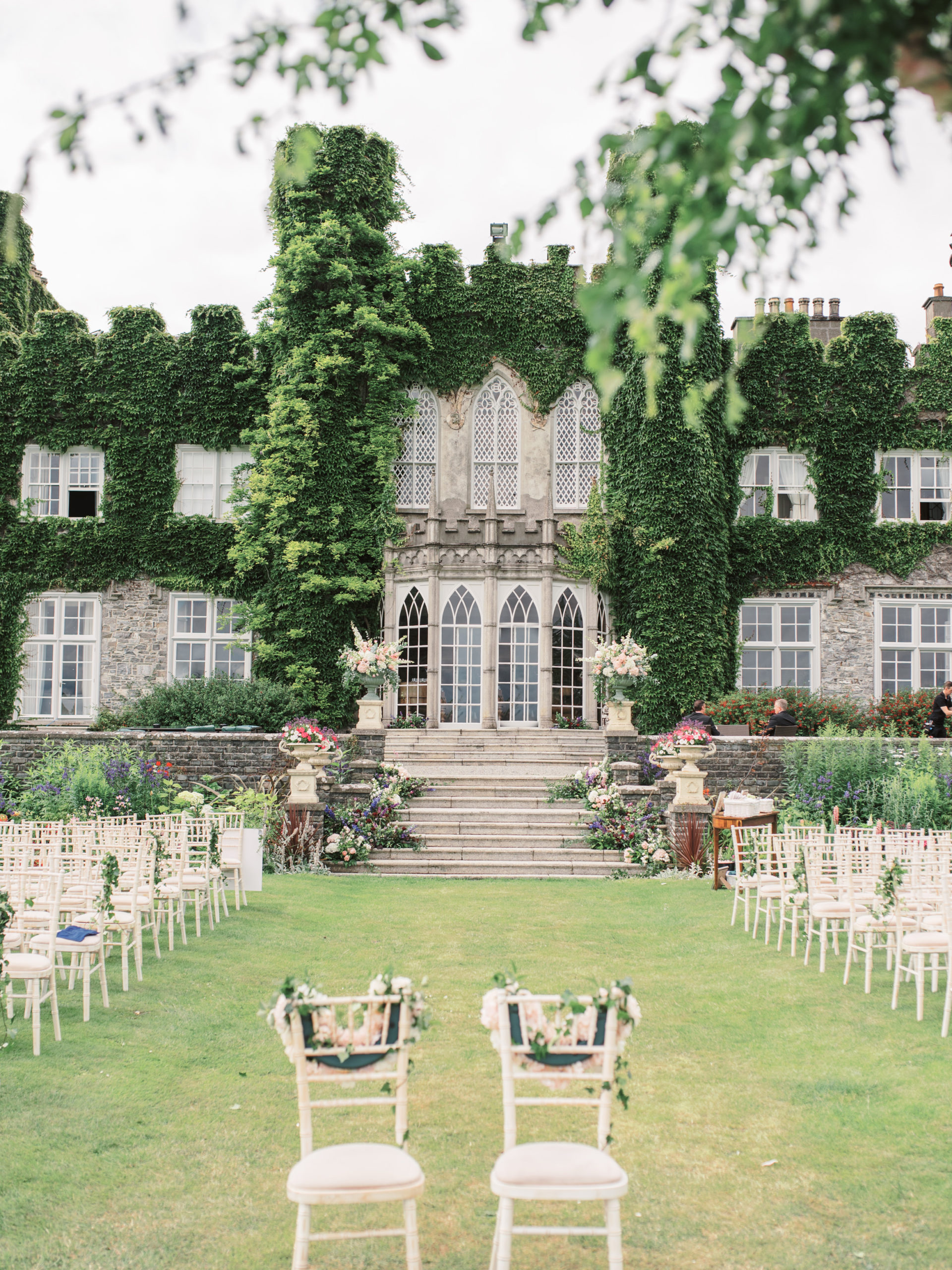
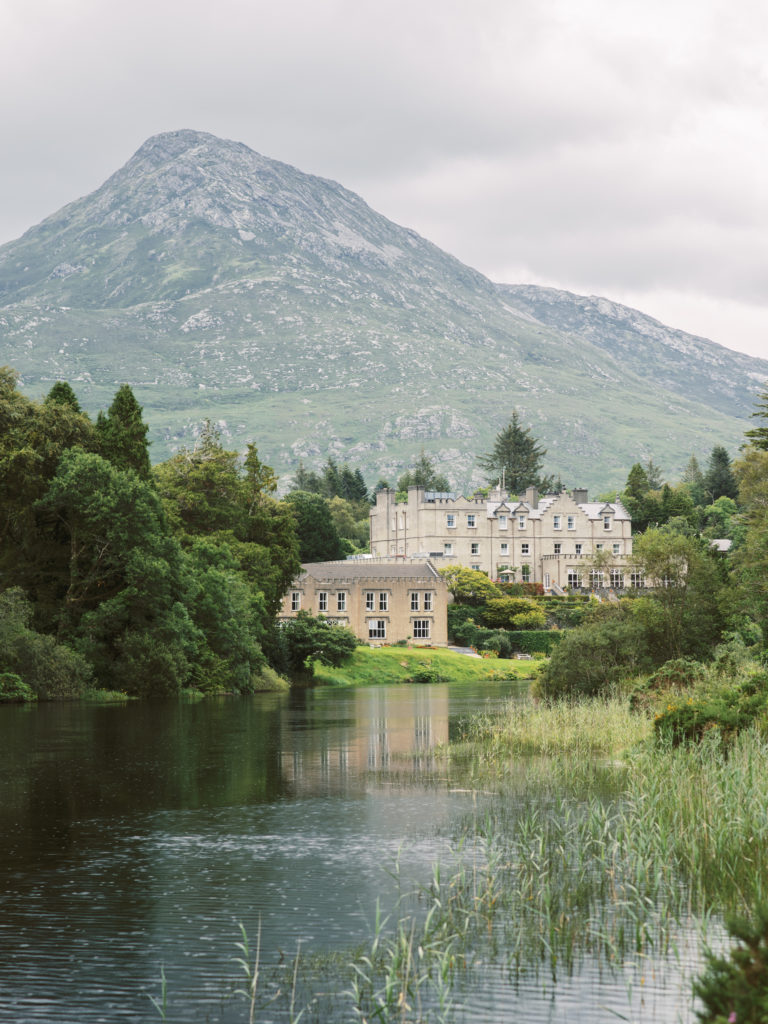
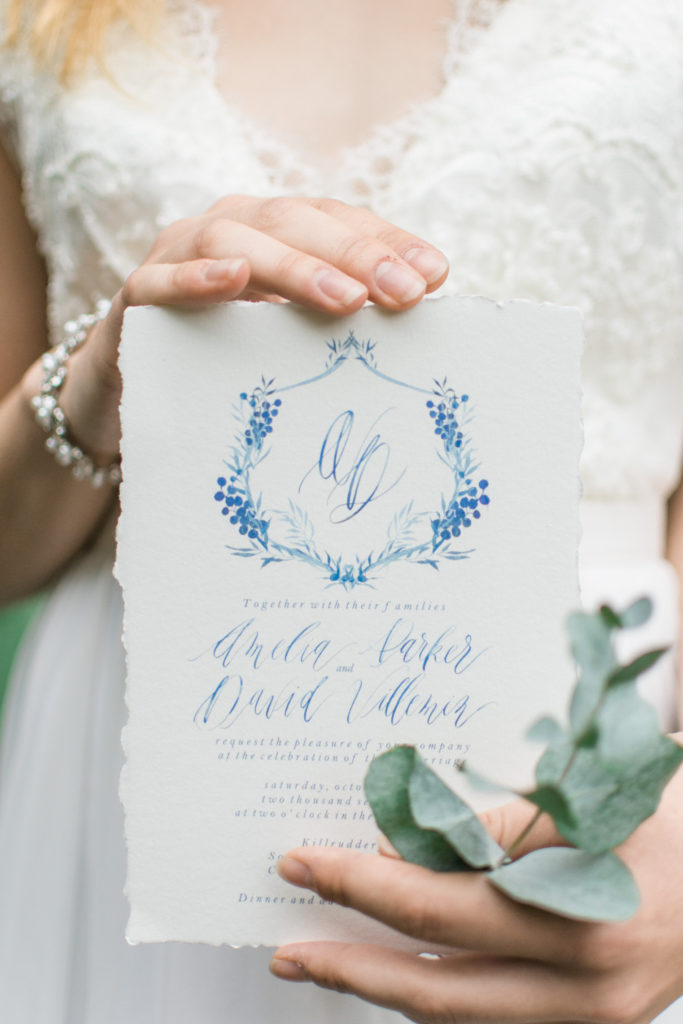
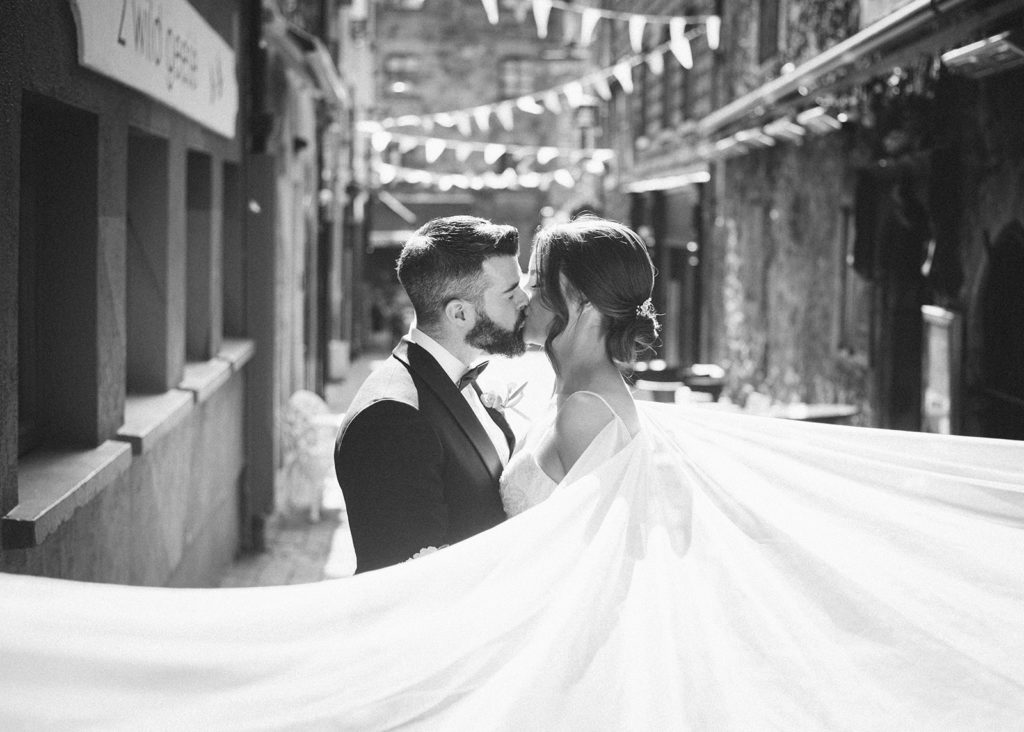
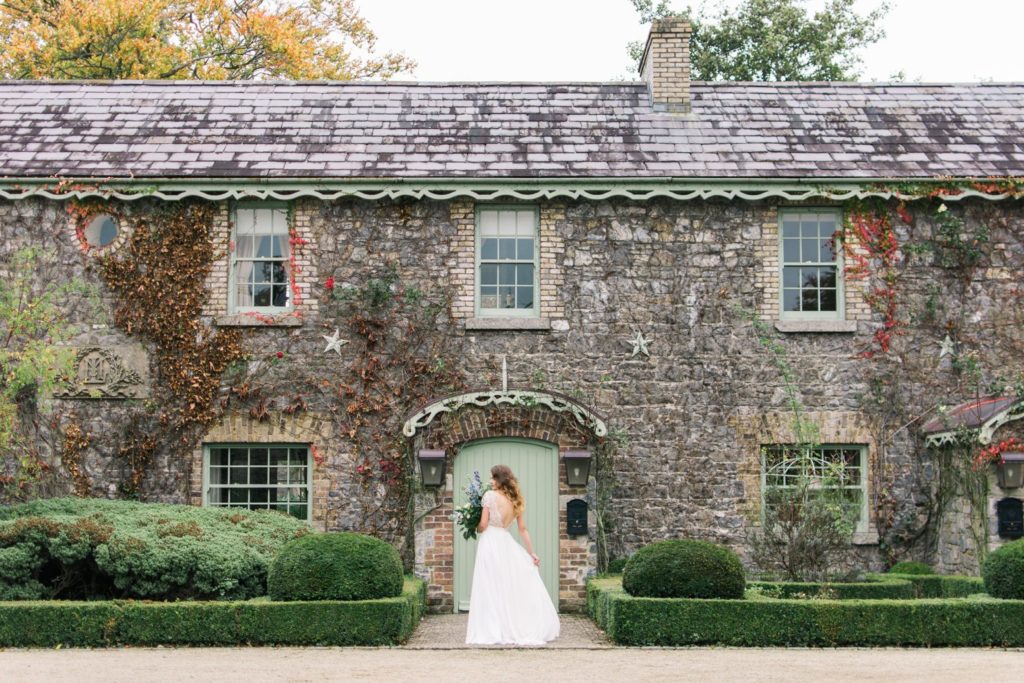
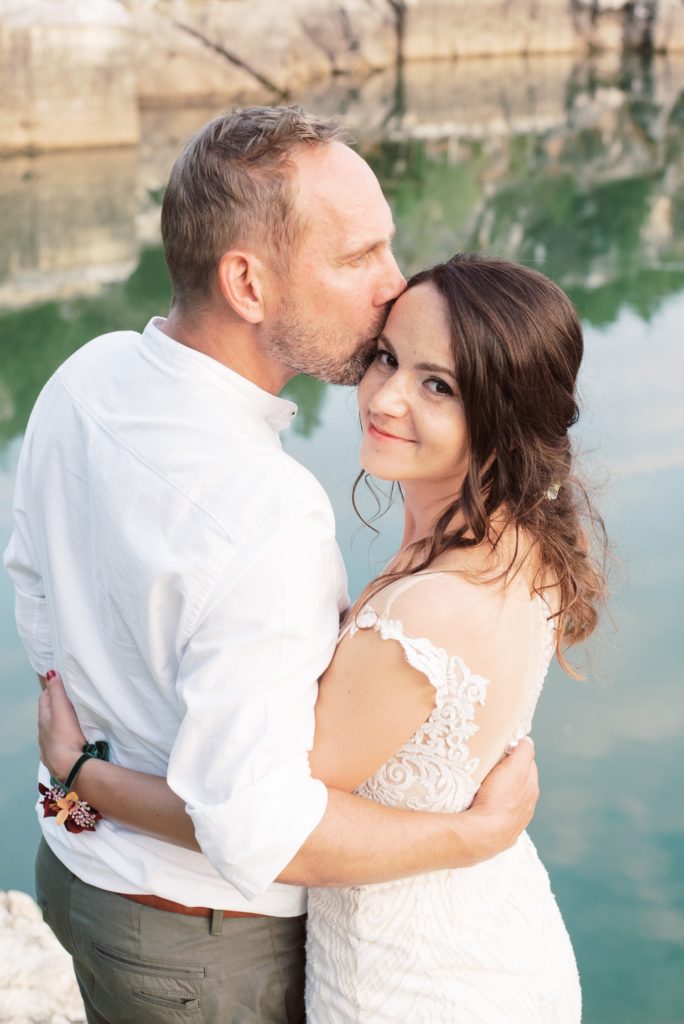
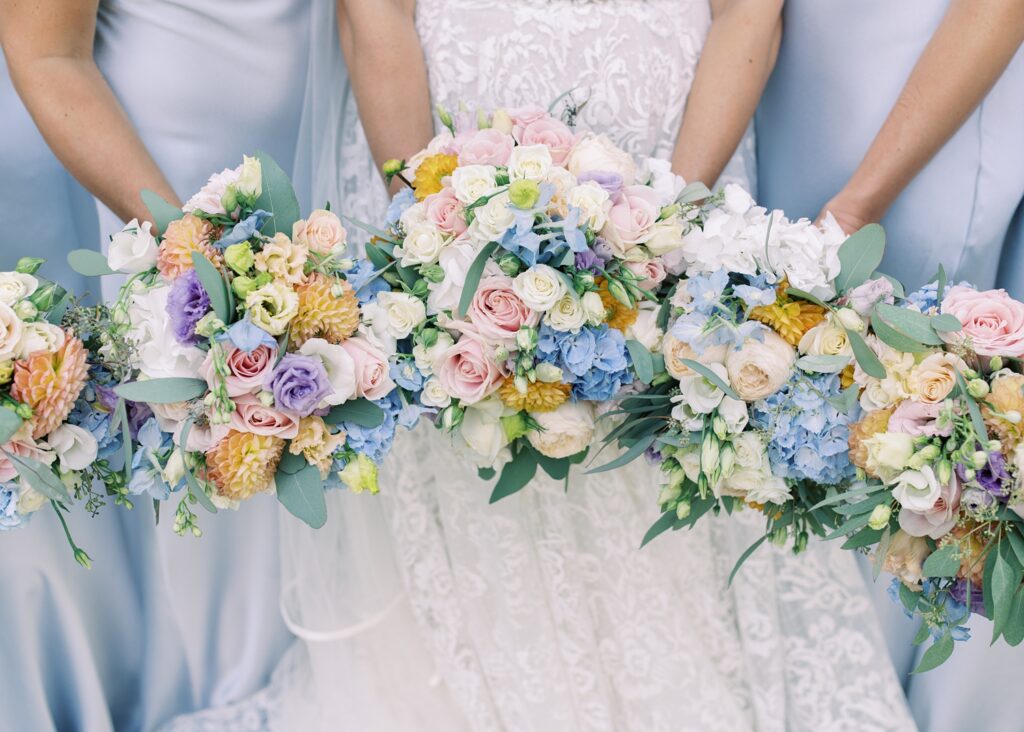
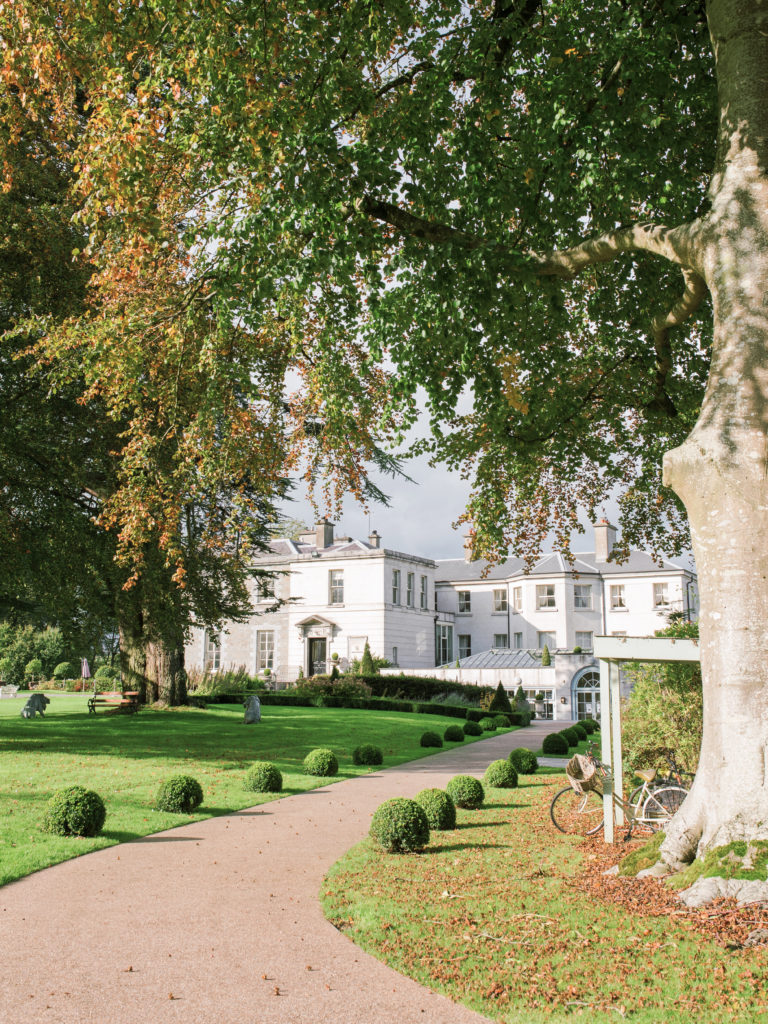
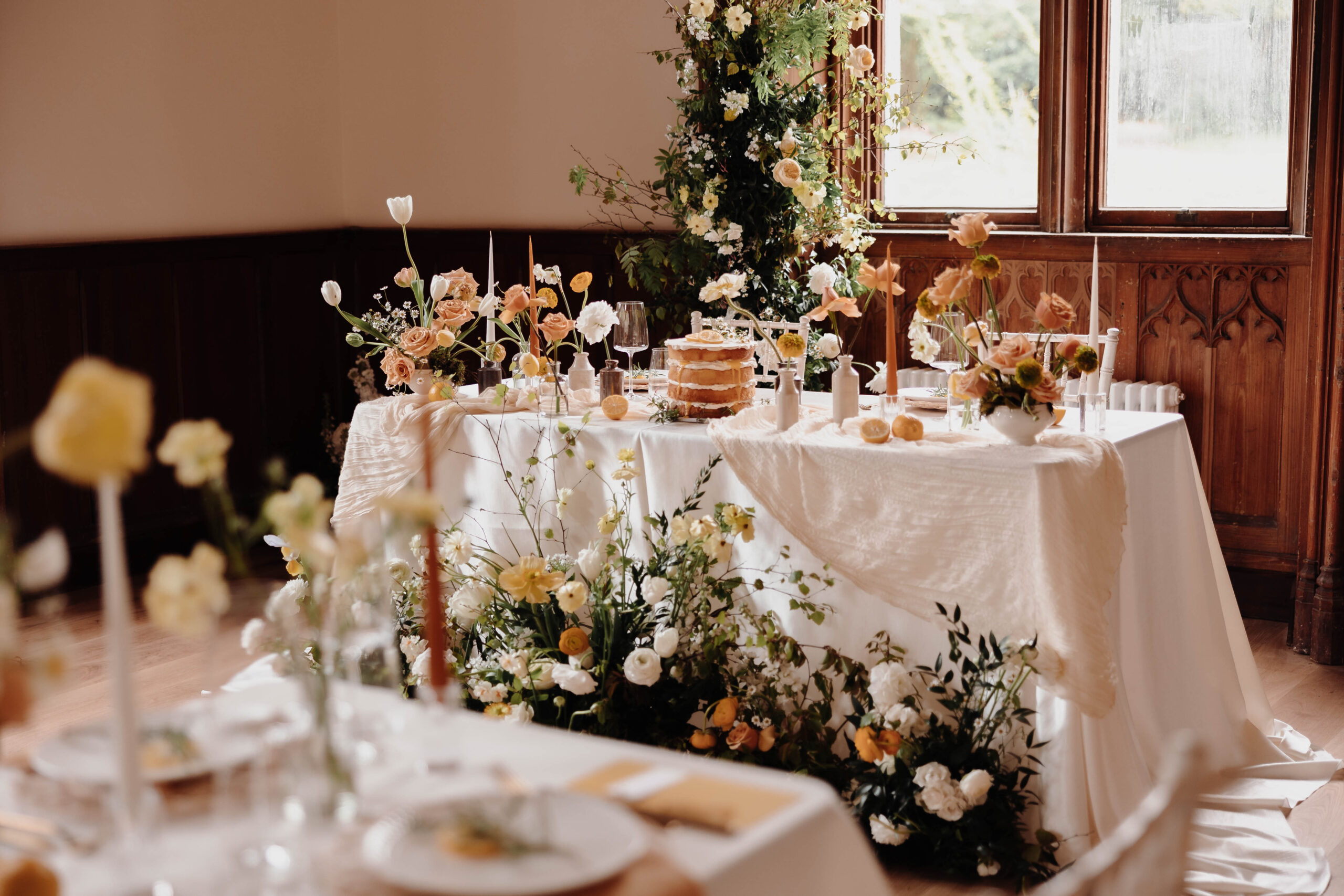
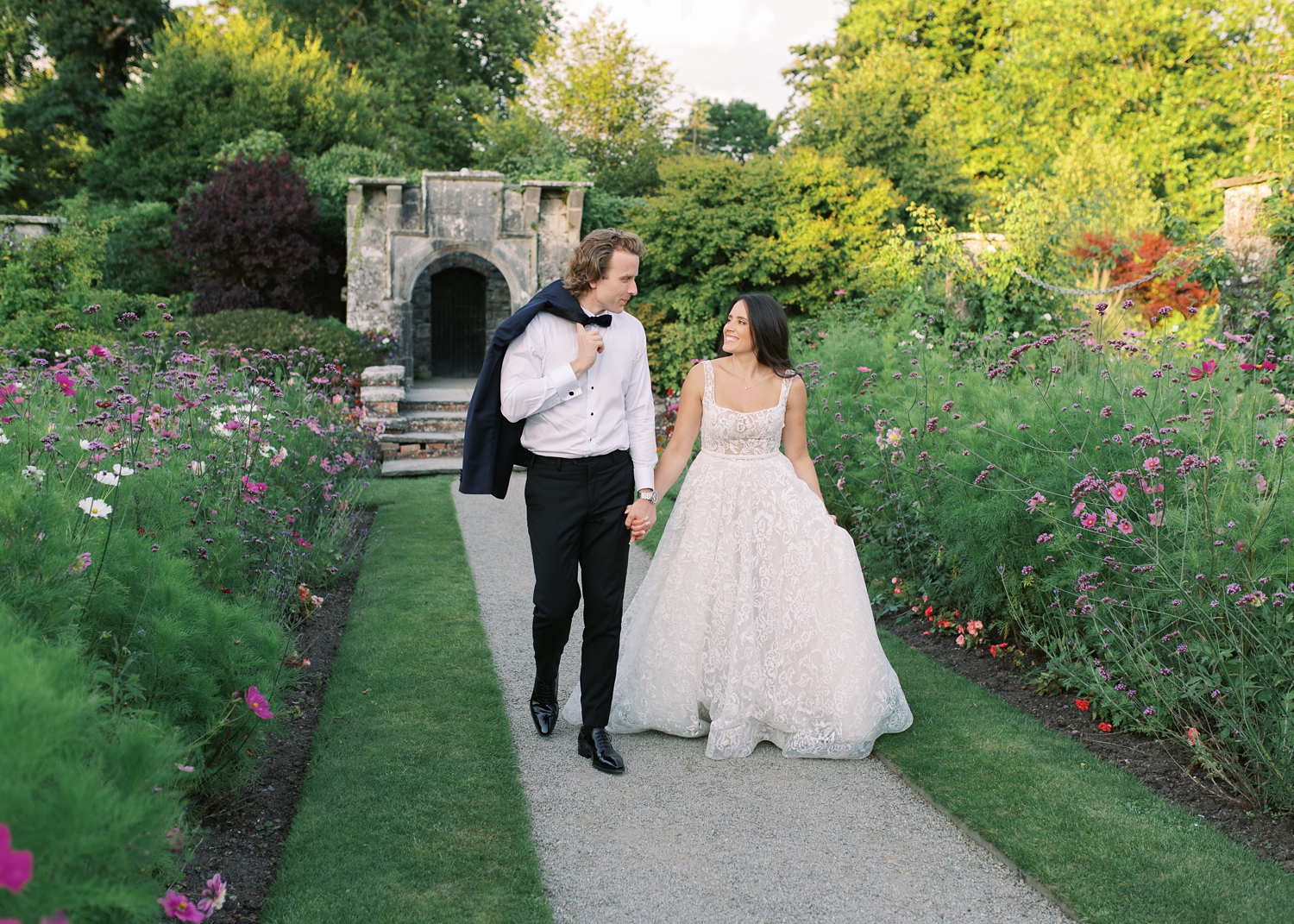

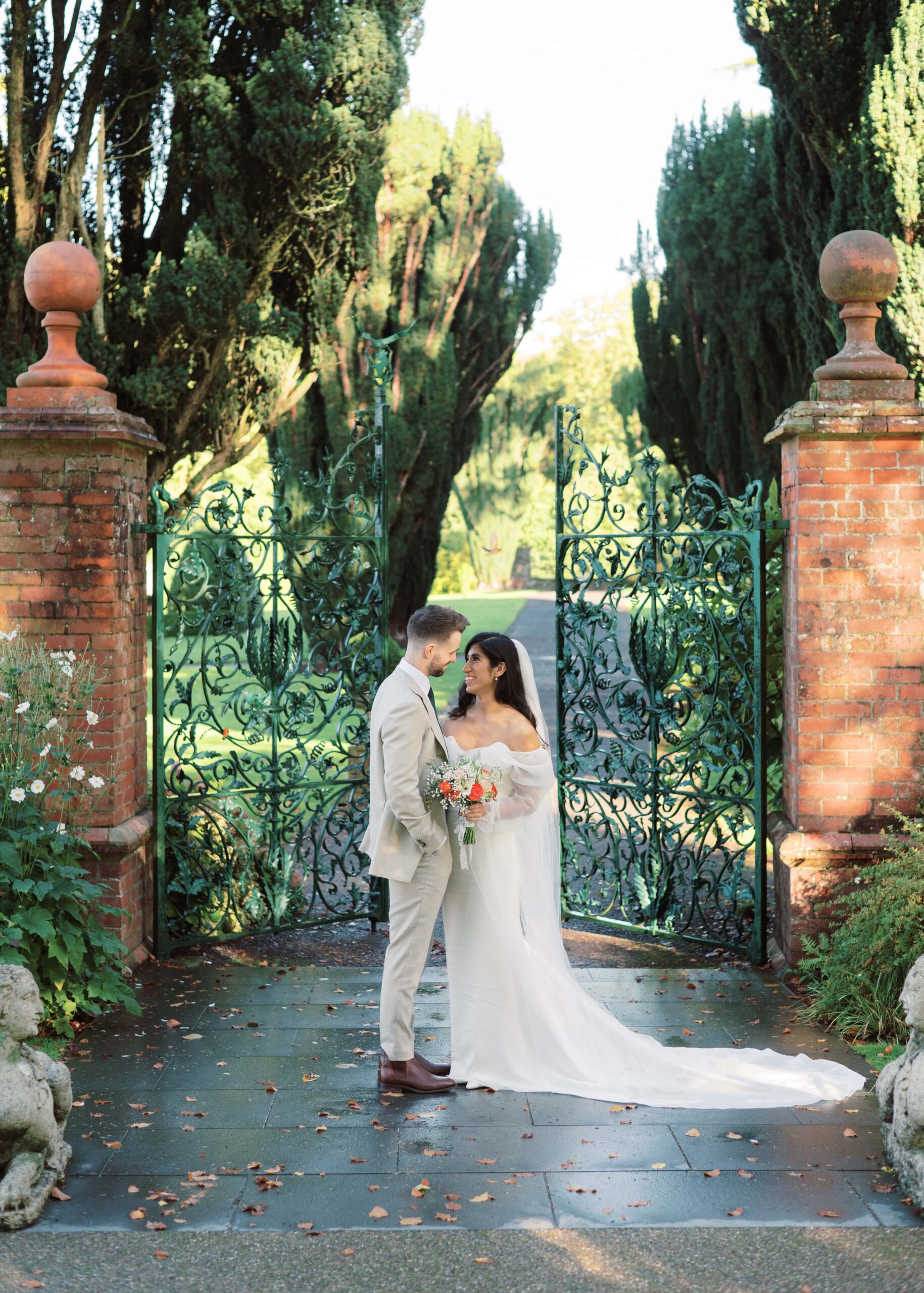
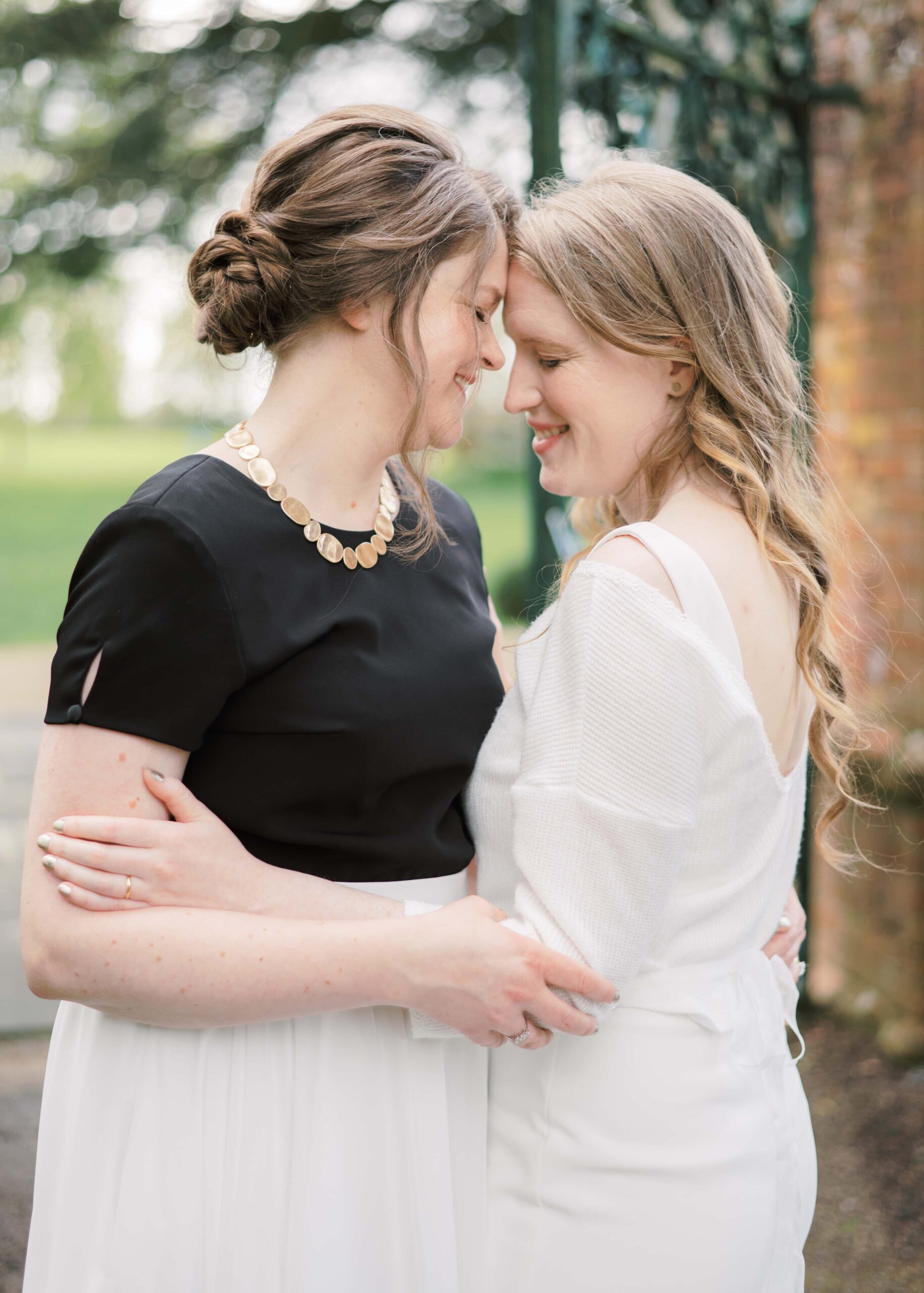
add a comment
+ view COMMENTS